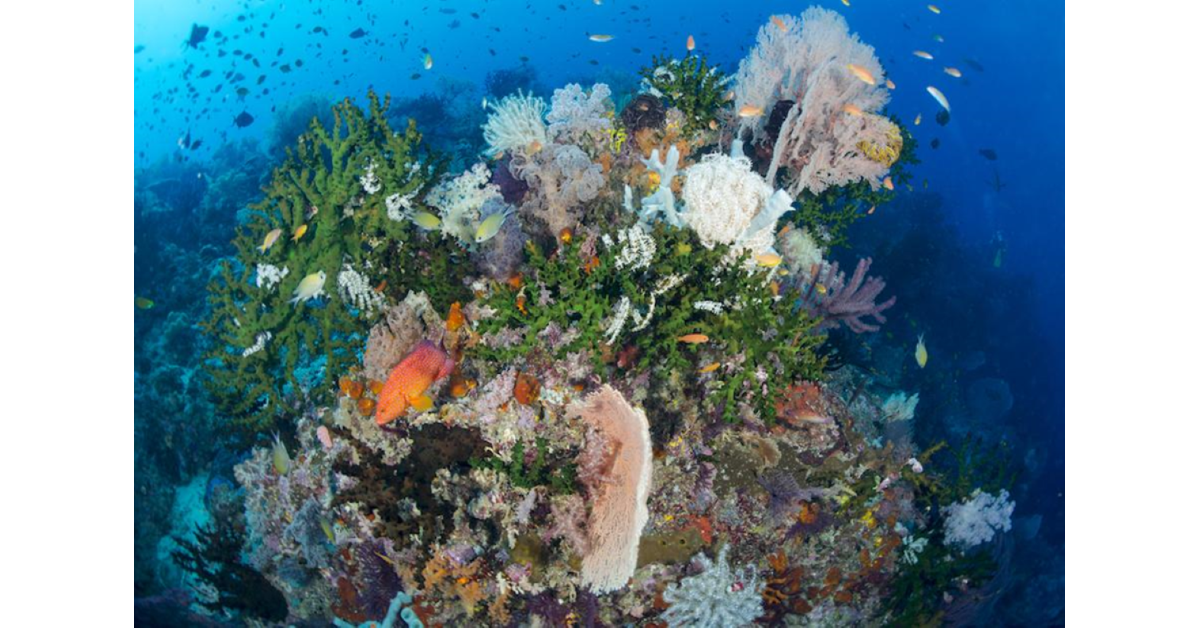Are you looking for a way to make scientific concepts and processes engaging and relevant? Consider making the ocean your classroom and teaching through the lens of marine science. Fundamental concepts of life, Earth, and physical science, as well as, aspects of technology, engineering, and math, all come alive through the study of the ocean. Here are some reasons for you to dive in!
- The ocean is our life-support system. 70% of the planet is covered by ocean, and 50% of our atmospheric oxygen is generated by ocean producers. The ocean makes Earth habitable by regulating its weather and climate. Lastly, the ocean is a source of food; over 1 billion people worldwide depend on fish as their primary source of animal protein.
- The ocean is home to a staggering diversity of organisms and habitats. The ocean is home to a dizzying array of microscopic life that forms the basis of complex food webs that include the largest animal on the planet, the blue whale. The tan bristlemouth, a small deep-sea fish, is considered to be the most abundant vertebrate on Earth. Estimates put this species’ abundance in the thousands of trillions. Habitats in the ocean range from deep-sea hydrothermal vents where the energy for life comes not from the sun but from chemicals formed deep inside the Earth to coral reefs which support species richness akin to that of tropical rainforests.
- The ocean inspires the use of cutting-edge technology. The ocean is largely unexplored. We have investigated only about 5% of the ocean to a depth of 10,000 meters (6.2 miles). Yet our efforts have yielded astonishing results like the discovery of new medicines derived from marine organisms. The more we learn about the ocean, the more questions we ask. Our curiosity to explore drives the development of technology, as scientists engineer ways to explore deeper, safer, and in more detail. Submersibles, ROVs, satellites, and artificial intelligence are just a few of the many ways scientists are pushing the boundaries of ocean exploration.
- Marine science teaches 21st-century skills. Today’s learners need to be able to define and solve problems, do effective research, think critically, and work cooperatively. The interdisciplinary nature of marine science positions it to be a relevant and engaging discipline for the cultivation of these skills. The study of marine science presents many opportunities for students to experience science as a process, not a collection of facts, but a tool for understanding the world.
![]() Chrissy Frederick spent 20 years as a classroom science teacher in both public and independent schools. She now brings her passion for science to her role as an instructional designer with Ocean First Education (OFE).
Chrissy Frederick spent 20 years as a classroom science teacher in both public and independent schools. She now brings her passion for science to her role as an instructional designer with Ocean First Education (OFE).
At OFE, students are taken to the intersection of fascination and education, through engaging, relevant, and student-centered learning experiences.
Special thanks to our friends from Ocean First Education for sharing with us today. Curriculum from Ocean First Education provides in-depth, multidisciplinary instruction that guides students towards a greater understanding and appreciation of marine science and ocean conservation. Receive 25% off Ocean First Education's fascinating curriculum at the Co-op here.


